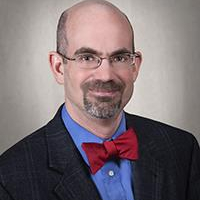IRACDA@TAMU Contacts
Directors
Rajesh Miranda, PhD

Dr. Miranda is a professor of Neuroscience and Experimental Therapeutics at Texas A&M University Health Science Center, College of Medicine. His research focuses on developmental neurobiology, neural stem cells, epigenetics, and drug abuse, with a specific emphasis on Fetal Alcohol Spectrum Disorders (FASD).
Among his contributions, in 2007 his research group was the first to show that microRNAs could mediate the toxicity and teratogenicity of drugs of abuse like alcohol (PMCID:2915840). Ongoing pre-clinical research focuses on understanding the function of microRNAs and other non-protein coding RNAs on the growth and maturation of fetal neural stem cells using a variety of vertebrate, including mammalian models (e.g., PMCID:4133727).
Ongoing research in human populations focus on assessing secreted microRNAs as predictive biomarkers for infant birth outcomes (PMCID:5102408). He served as chartered member and chair of several NIH grant review panels and is a past-president of the FASD study-group, an affiliate of the Research Society on Alcoholism.
He also served on the Steering Committee for FASD prevention at the Texas Public Health Service Office for the Prevention of Developmental Disabilities, where he co-chaired a workgroup to assess FASD prevalence in Texas. Dr. Miranda received his doctorate degree in 1989 in neurobiology and biopsychology at the University of Rochester, Rochester, NY and completed postdoctoral training in neuroendocrinology at Columbia University, New York, NY. He joined the faculty at Texas A&M University in 1995.
Chris Quick, PhD

Dr. Christopher Quick is a Professor of Veterinary Physiology & Pharmacology. Since joining Texas A&M in 2002, he has been on the forefront of creating inclusive models for education, research and service, as well as administrative models to support sustainable, scalable, and inclusive curricular and co-curricular undergraduate education and research leadership programs. To achieve goals of the Quality Enhancement Plan, in 2016 he created the undergraduate Biomedical Research Certificate (BRC) Program and the Aggie Research Program (ARP). To increase scalability, he designed BRC and ARP to accommodate multiple tracks to retain pedagogical rigor while capturing administrative efficiencies of scale. Partnering with centers and institutes, he has created multiple research leadership programs and spearheaded NIH-funded programs to prepare graduate students to lead research teams and teach course-based undergraduate research experiences (CUREs), as well as train postdoctoral scholars to create, evaluate, expand, and direct their own research leadership programs. Under his guidance, these interdisciplinary programs have grown 30% a year to serve 1,700 students/year, 41% of which are underrepresented in STEM. The ARP and BRC together create more than half of all research opportunities for freshman and sophomores at TAMU and have recently become the largest undergraduate research program in the nation. He has been awarded a university-level Association of Former Students Award for Teaching Excellence as well as a University Professorship in Undergraduate Teaching Excellence. In his capacity as Executive Director of the Aggie Research Program, he continues to eliminate barriers so Aggies can leverage their unique strengths to create research and leadership opportunities for fellow Aggies. Dr. Quick is an ADHD/LD professor who had struggled to learn in traditional lecture classes, failed to meet the standards to join an undergraduate research program, and was advised to discontinue seeking leadership opportunities that leverage his strengths and instead seek remediation for his deficits. After missing a deadline to drop out of school, he took the opportunity to challenge the proposition that he was the problem that needed to be fixed.
E. Gloria C. Regisford, PhD

Dr. E. Gloria C. Regisford is a Professor of Biology at Prairie View A&M University (PVAMU), a Historically Black College and University (HBCU) with an R2 classification. She teaches General Biology, Cell Biology and Topics in Genomics at the undergraduate level, as well as Cell Biology and Genomics at the graduate level. Known for her passionate and dynamic teaching style, she challenges students to think critically and analytically.
For the past 27 years at PVAMU, Dr. Regisford has made a lasting impact through her dedication to teaching, research and mentoring. She is deeply committed to engaging students in hands-on research, having mentored over 100 students - affectionately referred to as the “Regisford Lab Rats.” Many of her mentees have presented at national conferences, earned awards, and published in peer-reviewed journals. Her mentorship has also guided numerous students to pursue graduate and professional degrees and careers in the biomedical sciences and education.
Dr. Regisford has successfully secured over $7 million in funding from agencies such as NIH/NIGMS, NSF and USDA. As the Principal Investigator of these training grants, she has played a pivotal role in fostering student success in STEM at PVAMU. Recognized for her excellence, she was named PVAMU Faculty of the Year (2020) and TAMUS Regents Professor (2021-2022). Dr. Regisford is deeply committed to inspiring and empowering the next generation of scientists.
Program Administrator
Stacy De Leon
Ms. De Leon is Associate Director in the Office of Research at the Texas A&M University College of Medicine. She maintains program records, manages recruitment and admissions, provides support to the scholars, and handles logistics related to program activities.